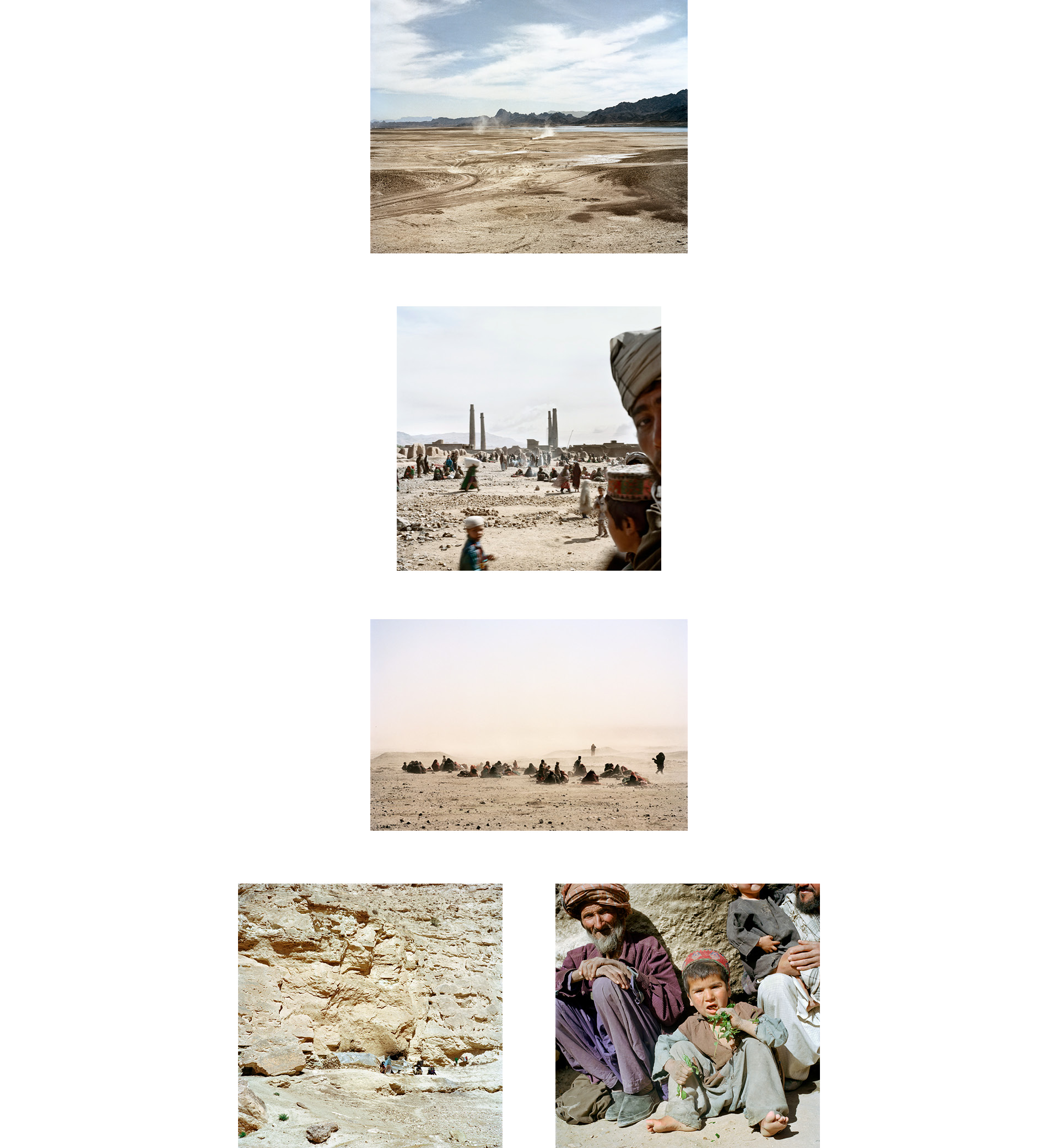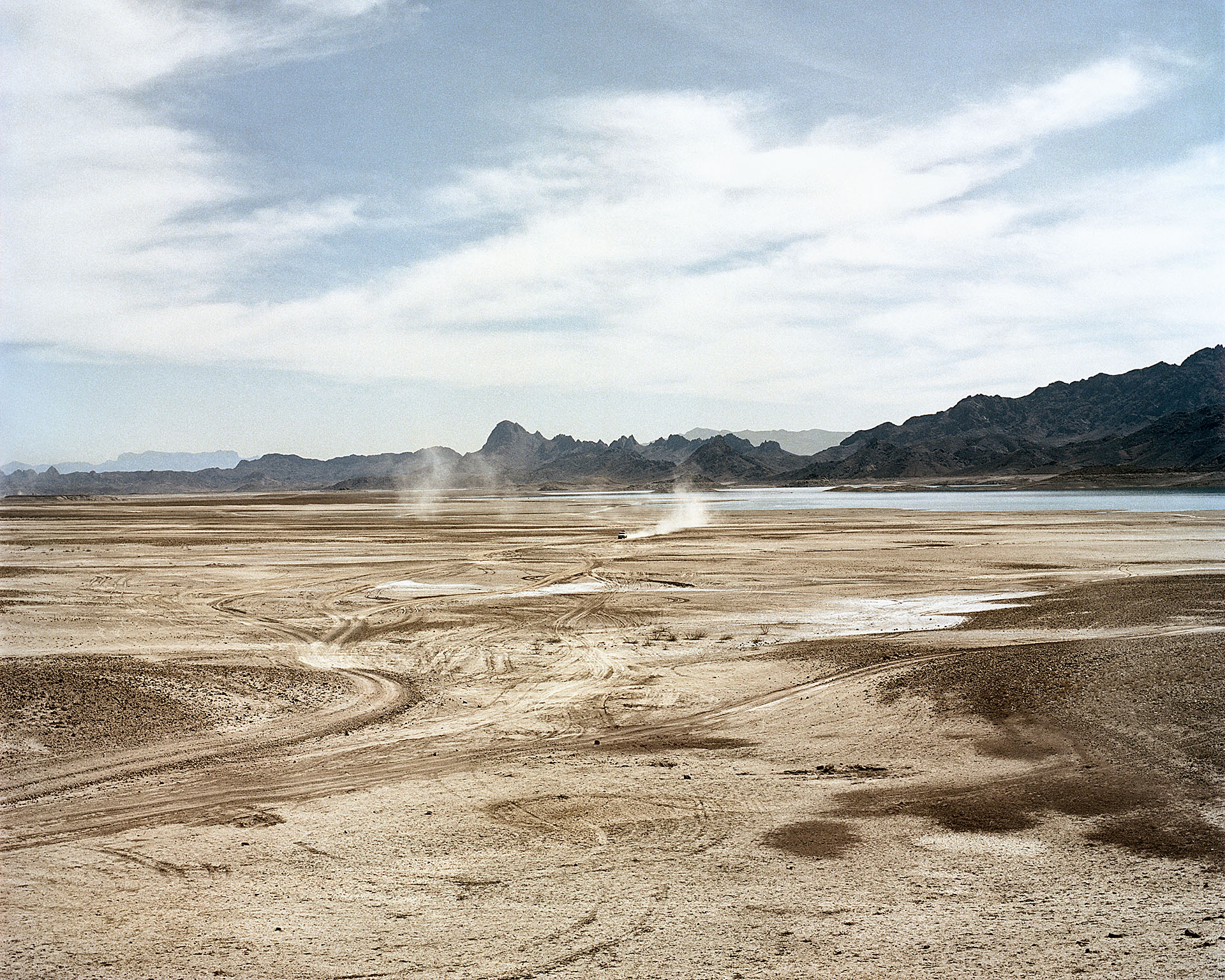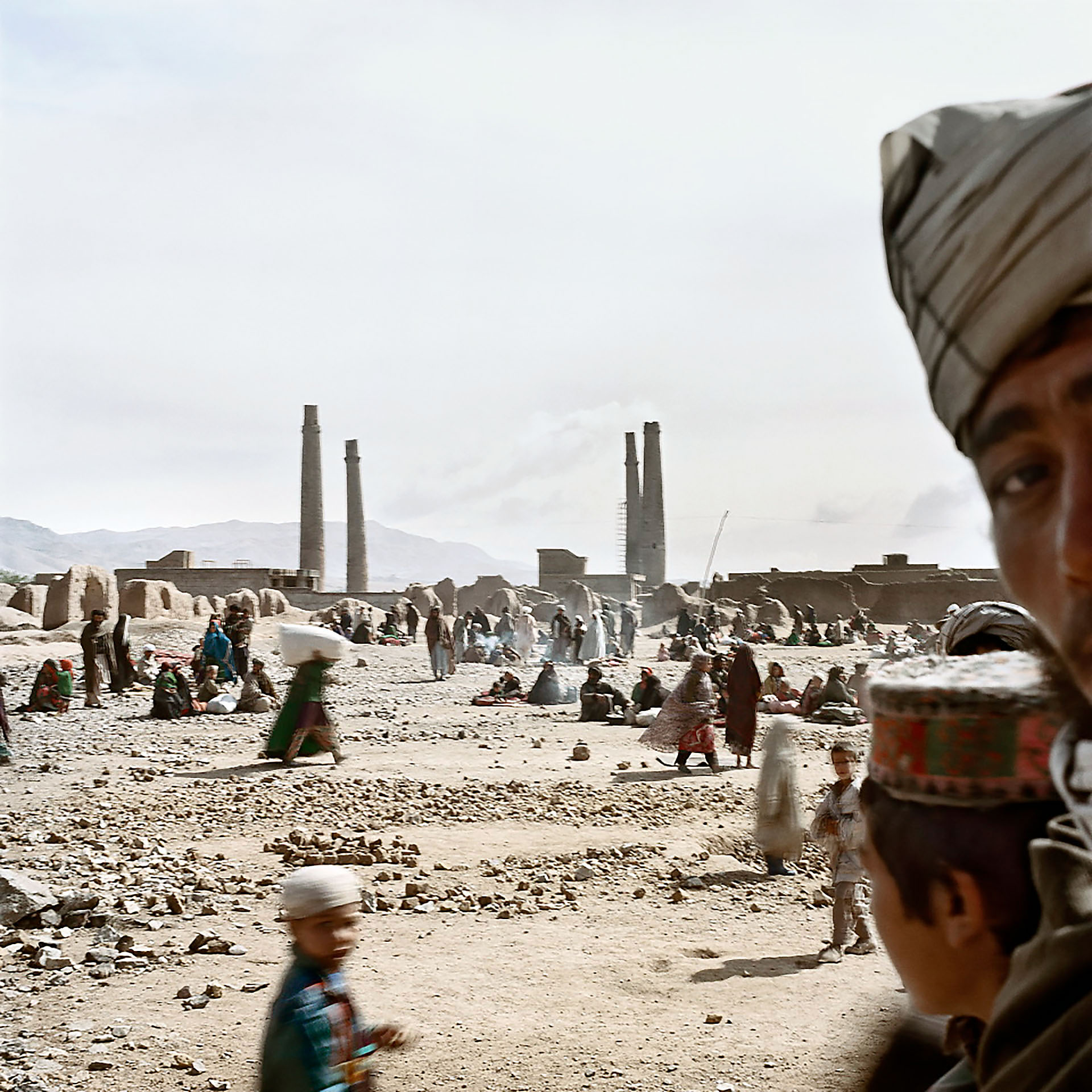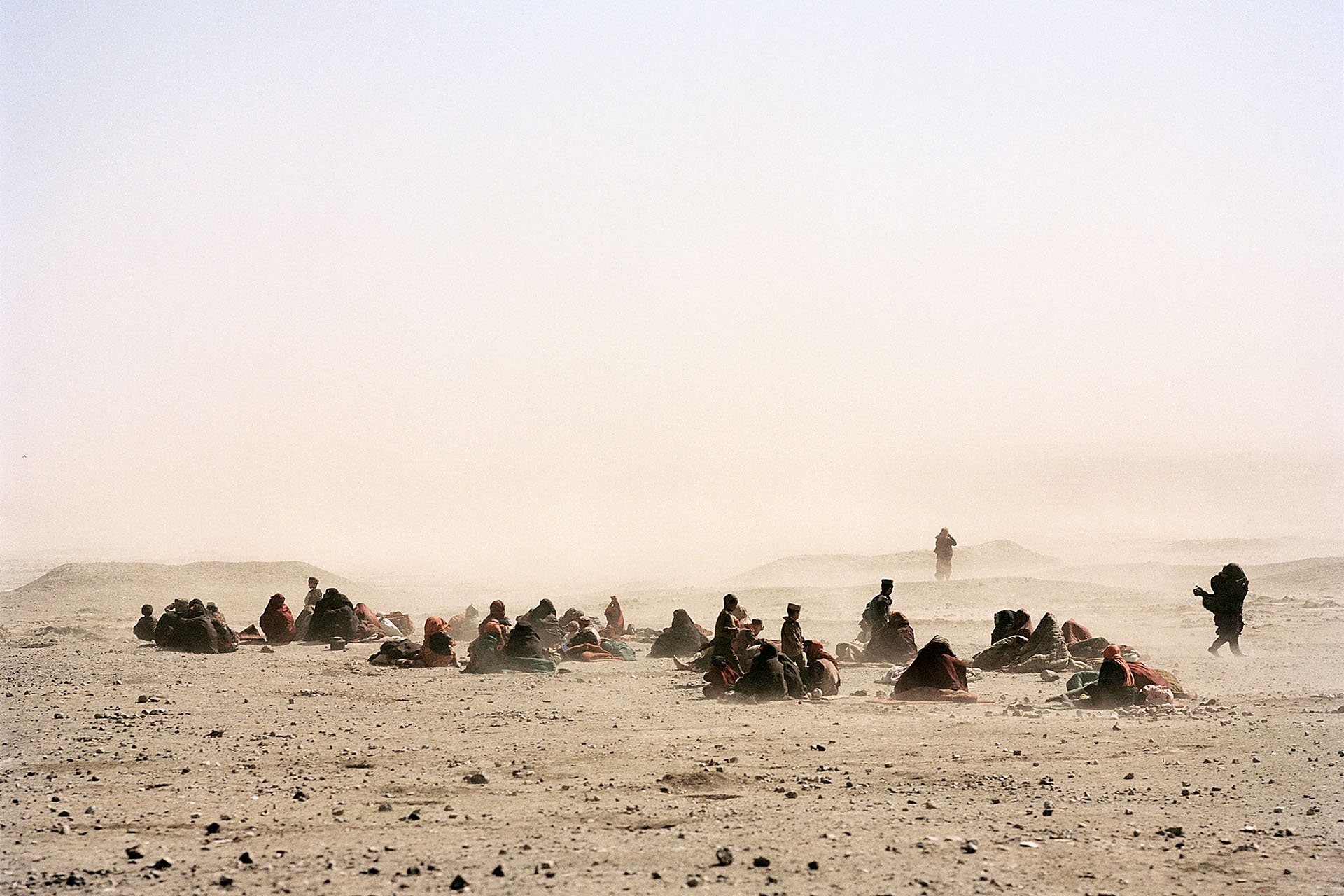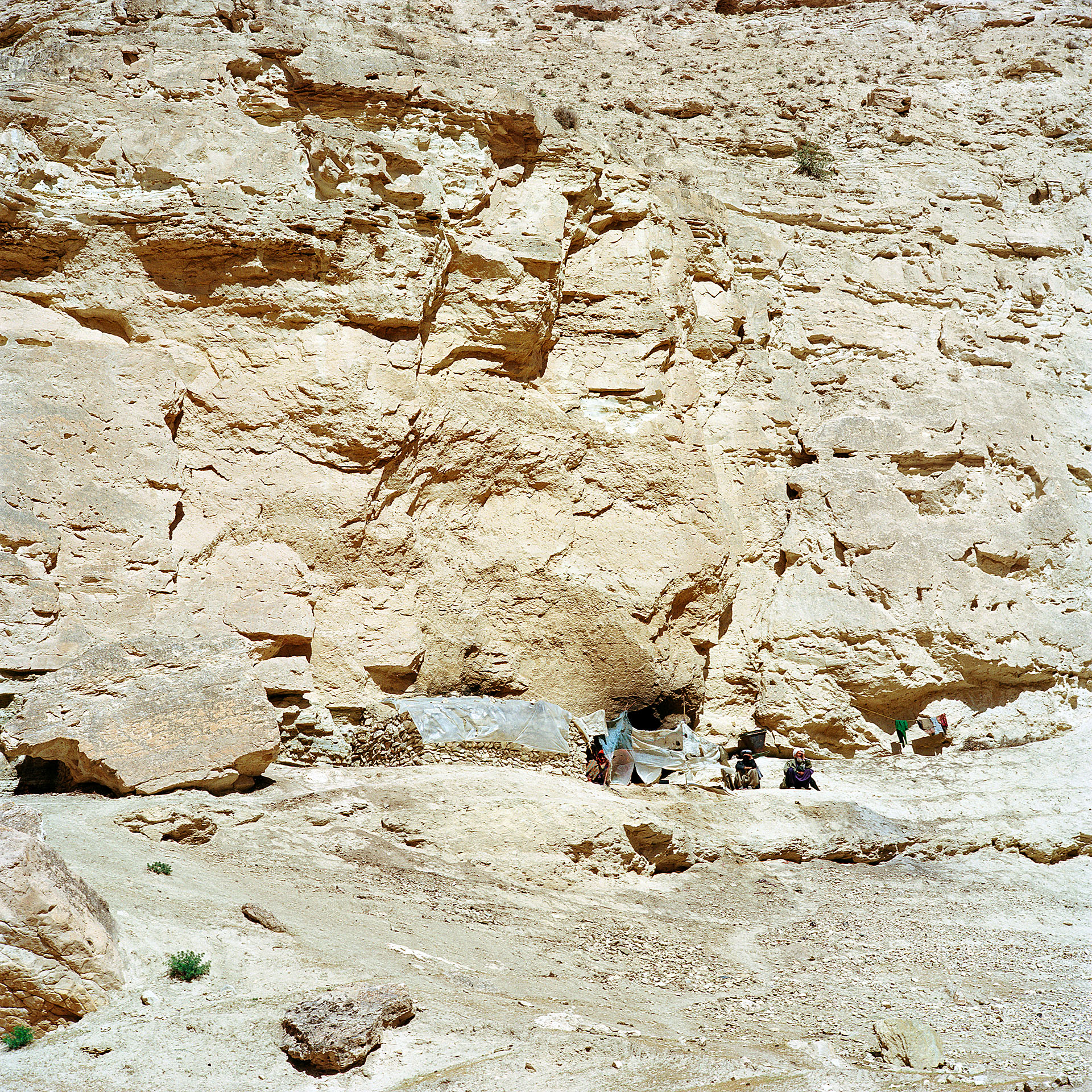2001
Afghanistan – Drought and Famine
As Afghanistan endured its worst drought in thirty years, four million people were forced to leave their homes. The cumulative effect of three rainless years, the extreme cold of the previous winter, and the war in the northeast had made a humanitarian disaster inevitable.
The Taliban leadership and World Food Program repeatedly asked the international community for help. But with its refusal to extradite Osama bin Laden, the Taliban regime effectively sealed the Emirate of Afghanistan’s isolation. One consequence of the unilateral UN sanctions against them was the ban on Ariana flights, which in turn affected the transport of relief goods and desperately needed medical supplies. While the sanctions forbade members of the international community, of the EU, and ASEAN from providing any help at all, economic or military, the Northern Alliance, the Taliban’s opponent, continued to enjoy the support of Russia and Iran.
This overland journey through what became the world’s top outlaw state, so impoverished that it no longer even features in UN statistics, led from Kandahar to camps in Herat, across the Sabzak Pass into Badghis province, and deep into the Murghab Canyon and to encounters with those who, having lost livestock and seeds, are now stranded in caves without hope of escape, where they subsist on what would normally be camel fodder.
The reportage was commissioned and published by Facts, Zürich, and became part of Travelling through the Eye of History.
Assignments
- 2010–2018Afghanistan – Glacier Walks in Times of War
- 2012Burma Revisited
- 2009Swat – Mutilated Faces
- 2007Kazakhstan – Oil Great Game in Central Asia
- 2005Turkmenistan – A Journey under Surveillance
- 2004China – Farewell to Kashgar
- 2001–2010Afghanistan – A Thirty Years War
- 2001China – The Transformation of Xinjiang
- 2001Afghanistan – Drought and Famine
- 2000Kashmir – Paradise Lost
- 2000Ulanbataar – Children’s Underworld
- 2000London – Going Southwark
- 1999Indonesia – East Timor: Times of Agony
- 1998–1999Borneo – Destruction Business
- 1998Afghanistan – Economy of Survival
- 1997Cambodia – Quiet Days in Pailin
- 1996Tajikistan – Forbidden Badakshan
- 1995Iran – Roads to Isfahan
- 1994–the presentAngkor – The Mercy of Ruins
- 1994Bangladesh – Sandwip: An Island disappears into the Sea
- 1993Calcutta – Durga Puja
- 1992–1996Indochina – Legacies of War
- 1992Cambodia – Resurrecting a Country
- 1991–1992Burma – Behind the Bamboo Curtain
- 1990Ahmedabad – Cotton Mills
- 1987China – The Pulse of the Earth
- 1978–1980Greece – Lavrion Silver
